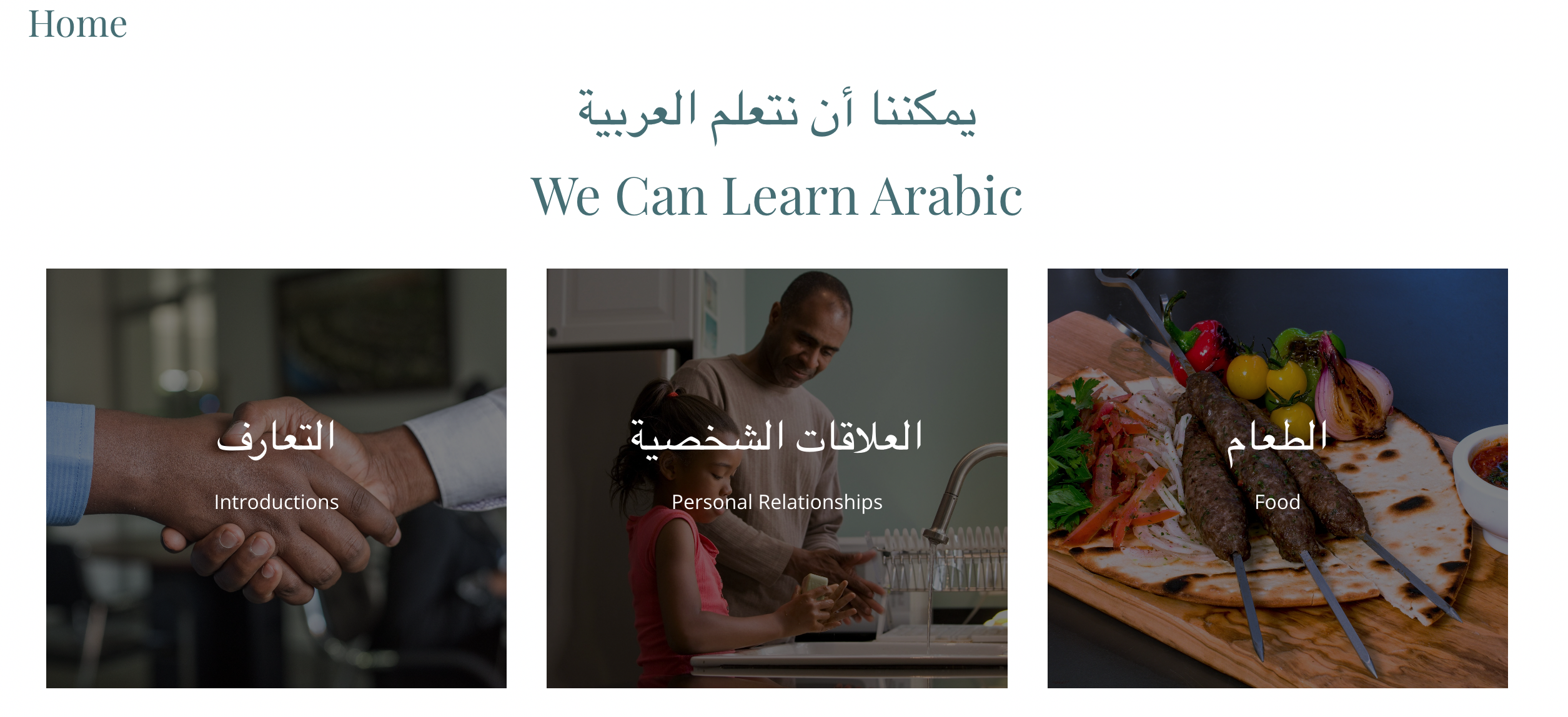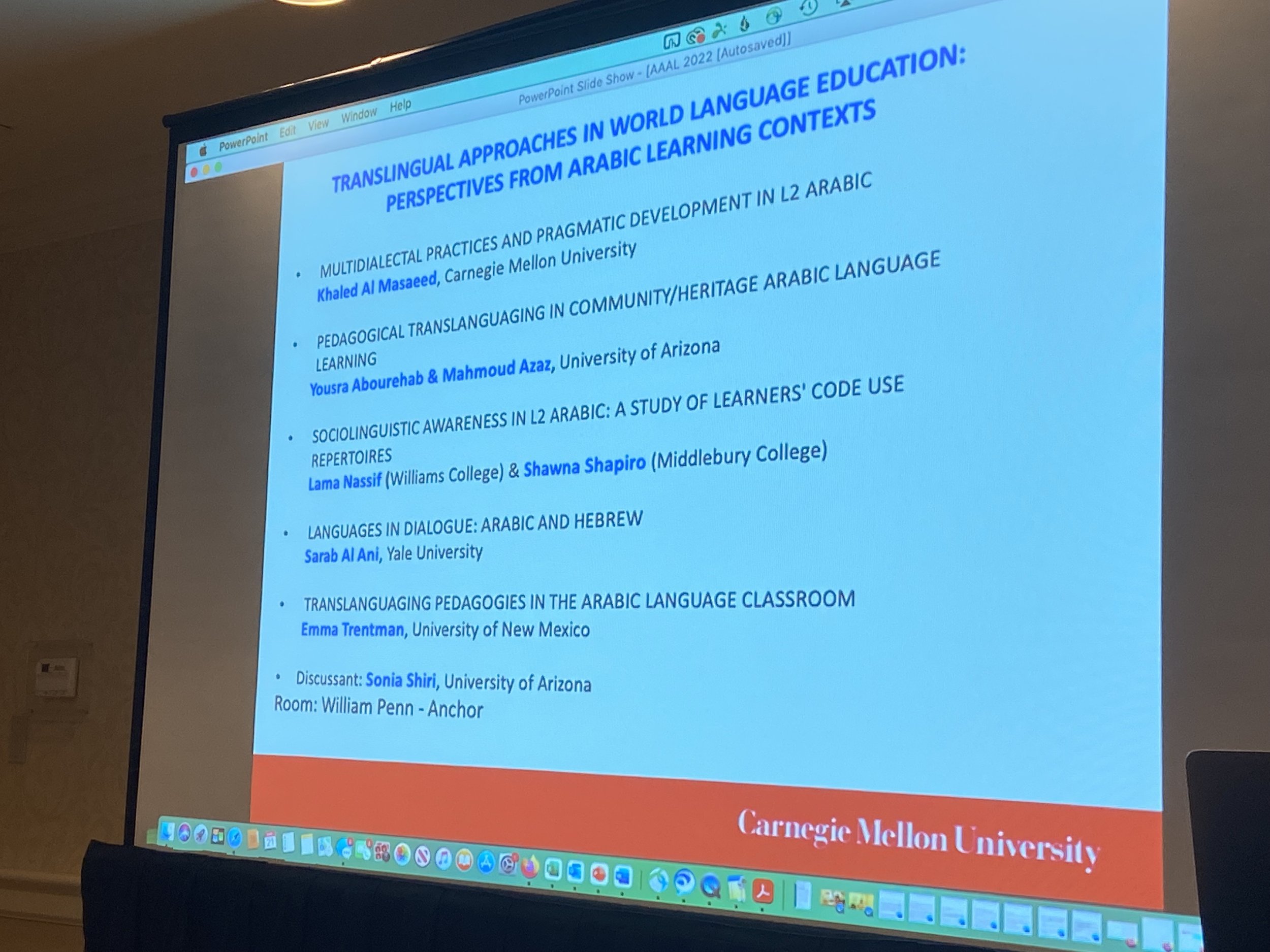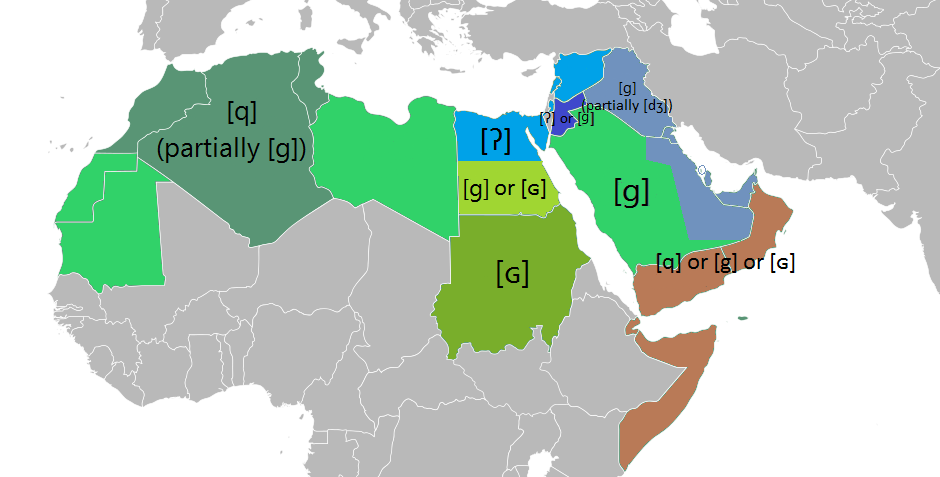Tag: pedagogy
-

We Can Learn Arabic site updates
When we launched the We Can Learn Arabic website in 2020, one of the most exciting aspects was the ability to make regular updates as we test the materials in class. We added new units and made tweaks to the activities in 2020 and 2021. In Summer and Fall 2022, as part of our research…
-

Translingual Approaches in World Language Education: Perspectives from Arabic Learning Contexts
A couple of weeks ago, I co-organized a colloquium with Khaled Al Masaeed at the American Association of Applied Linguistics Conference titled “Translingual Approaches in World Language Education: Perspectives from Arabic Learning Contexts”. Although I have attended the AAAL conference most years since 2007, and it is probably my favorite conference, there are usually only…
-

Does a multidialectal approach mean teaching all of the dialects?
This is a question I get frequently when I advocate for a multidialectal approach to learning Arabic. The short answer is no.The longer answer is also no, but with a much lengthier explanation, which I thought I’d give in this post. In general, there are two types of people who ask this question. The first…
-

Virtual Exchange with the Stevens Initiative COILed Classrooms
In addition to all of the other excitement this semester, I’ve also been participating in a virtual exchange program with our fourth semester Arabic class, through the Stevens Initiative Connected Classrooms program. While I’ve done virtual exchange before, it’s generally been pairing my students with individual language partners, rather than a classroom. So, I thought…
-

The energy drain of the language enrollments issue
In two previous posts, I’ve addressed structural aspects of the language enrollments issue as well as some ideas on what language teachers can control. In this post, I want to address a final aspect of this issue: energy, and the energy-draining nature of being asked to justify a central part of one’s existence.
-

The enrollments issue: What can language teachers do?
Two weeks ago, I wrote a post on structural aspects of the language issue, and promised a future one on things that I think are within language teacher’s control, and that we can work on. Today, I’m back with that post. I have to admit this one was kind of a struggle, as most of…
-

Structural Aspects of the Language Enrollments Issue
In response to the problem of declining enrollments in language classes, the message given to teachers is “get your enrollments up!” While this may seem like an obvious solution, it actually creates even more anxiety and frustration as it is a request for overloaded language teachers to take on additional work, in which they have…
-

What if I’m not organized enough for the Organize Your Language Teacher Life course?
For today’s blog post, as the end of the Fall enrollment for my Organize Your Language Teacher Life course approaches, I thought I’d address a response I hear over and over from language teachers about this course: “It seems like exactly what I need, but I don’t know how I will get organized enough to…
-

Summer Blog and Podcast Recommendations
I traditionally take the summer off of blogging, so this is my last post until August! So, I thought I’d provide a roundup of some of my favorite blogs and podcasts for you to consume, as if you enjoy my blog you will probably enjoy some of these as well.
-

Variation and Standardization in the Language Classroom: Are We Asking the Wrong Questions?
Variation is inherent to languages and language users, yet is it often the subject of consternation in the language classroom, especially at lower levels. Essentially, the questions center around which variety to teach? Can we teach multiple varieties? Will this confuse students? Will they understand how to use them? What if they mix varieties? Per…